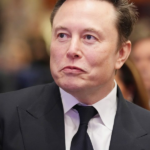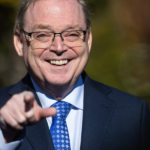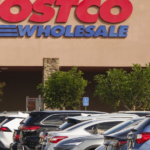In times of economic volatility, wealth is often a subject that becomes politicized.
This is courtesy of policy tweaks such as an increased exemption threshold for estates and gifts to $15 million, as well as changing the cap amount on deductions for state and local taxes (SALT) from $10,000 to $40,000.
One issue with current debates about wealth taxes, says UBS’s chief economist Paul Donovan, is that often, America’s wealthier voters don’t realize they are rich.
Speaking on a roundtable last week, Donovan explained: “A rather interesting issue that we’re starting to see come up more and more in discussions … about things like wealth taxes and inheritance taxes is that increasingly there is a gap between the perception of wealth and the reality of wealth.
“So people will say, ‘yes, we must be doing a wealth tax for millionaires, but not me, I don’t count as a millionaire’ when in fact, you own a two-bedroom apartment in Manhattan. You are by definition, a millionaire.”
Donovan continued that social media also distorts wealth. Even if wealth inequality hasn’t changed, he said, people feel worse off because of the extravagance shared online.
“As a result, people are perhaps again getting more confused between their perception of their wealth and the realities of their wealth,” Donovan added.
“Many people are wealthy but they perceive themselves as somehow being disadvantaged because they’re not living the best life of a social media influencer.”
D’Arpizio added that luxury stores more widely stocked white paper bags to send consumers off with their purchases because individuals didn’t want to be seen with designer carrier bags.
“In the U.S., that was self-induced; people were correcting their behaviors because they were ashamed,” D’Arpizio continued. The trend now, led by Chinese consumers, is governmental.
She explained: “This is a communist regime that pushed luxury consumption in the last 15 years when people were becoming wealthier and wealthier every year. Now that growth is slowing down, there is unemployment on the younger generations, so to prevent tension, they are trying to say to the wealthy people, ‘don’t show off that you are wealthy in this moment.’”
This social tension is spreading West, added D’Arpizio, meaning luxury brands should focus less on the perception of being elite and more on being a bastion of culture and innovation.
That being said, just because the wealthy either don’t want or don’t realize they are rich, that doesn’t mean the engines generating their assets are moving any slower.
“There are two independent drivers that we need to consider, which have no impact on the driver of wealth growth,” Donovan said in response to a question from Fortune. “The first of these is the rise of economic nationalism.”
One need only look at Trump’s America-first initiative, but Donovan added the behavior is also prevalent in nations like China.
He added “quite often there can be hostility to foreign brands, to foreign companies. That is certainly something that we have seen, for example, with European luxury brands in China.”
Donovan added that a second factor shaping the wealthy’s approach to consumption is that their focus is less on goods and more on fun.
“These trends which are independent of the whole wealth creation … we’ve got to factor in because they can give the appearance of shame about wealth when in actual fact it’s simply changing consumption patterns for other reasons.”









